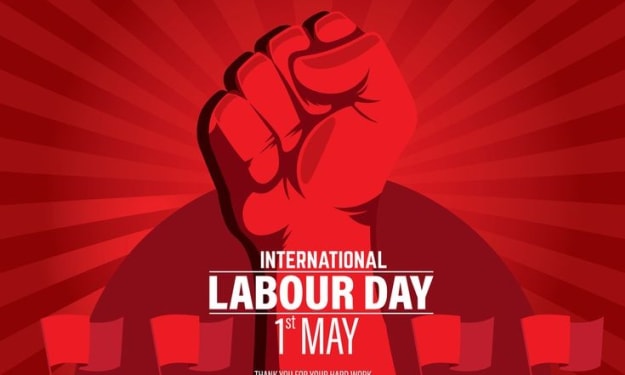Slack’s Recent Antitrust Complaint Against Microsoft: Important Takeaways For Startups
The value of competition and the limitations of a single product company.

We cannot limit ourselves to continuing on the path we have already opened — Amancio Ortega
November 2, 2016, Slack put out an audacious message to Microsoft just before the latter launched Teams, a competitive application that directly competed with Slack.
The message was a full-page letter in the New York Times stating how Slack was genuinely happy to have the competition. The letter went on to offer a lesson to Microsoft on how to get the job done and why it would be difficult to replicate the success Slack has had.

At the time, most people were optimistic about Slack’s future prospects and what they stood to accomplish from the single product they provided to people and organizations across the world. In hindsight, I think we can all agree that everybody overestimated the growth of Slack and underestimated the influence of Microsoft.
In July of 2020, Slack filed an EU competition complaint against Microsoft for bundling their Teams application with the Office Suite.
Here is a small excerpt of the complaint:
“Microsoft has illegally tied its Teams product into its market-dominant Office productivity suite, force installing it for millions, blocking its removal, and hiding the true cost to enterprise customers.”
Slack’s General Counsel reportedly said, “They created a weak, copycat product and tied it to their dominant Office product, force installing it and blocking its removal, a carbon copy of their illegal behavior during the ‘browser wars.’”
A couple of things are evident from the complaint filed by Slack. Contrary to what they once said in the New York Times letter, they are not genuinely excited to have Microsoft as a competitor. And, more importantly, a single product company will need to reinvent itself more often than expected to stay ahead of the competition.
There are a few takeaways from this lawsuit that comes to light for startups, especially those that launch with a single product or service.
A caveman shouldn’t battle with a T-Rex
A bit of initial business success tends to make one feel proud, excited, and— sometimes—slightly arrogant. However, it is essential to be aware of those feelings to help make rational decisions for your company.
Instead of taking up an entire page on advising Microsoft on how to run a glorified Messaging Application, Slack may have better spent their time learning from them. If you have a product that is not innately unique or proprietary, it’s arguably naive to think that a competitor can’t find a way to innovate and do a better job.
On the other hand, an expansive organization like Microsoft would recognize the benefit of developing a messaging application and has the resources to create their own version, rather than buying the competitor. Why? Because it is cheaper for them to build one in-house rather than shop for it outside.
How did these companies reach such a scale?
For starters, they do not depend on one product. Instead, the minute they realize that one of their products is working as a cash machine for them, they leverage that spotlight and launch another product. The success and failure of it are relative and debatable. However, despite the result of their work, they do not stop thinking about what’s next.
The approach of Slack is quite contrary. They focus on a single product and at the end of the day: there’s only so much you can do with a messaging application.
12 million users and a single product is not enough ammunition to go to war with the T-Rex of the industry.
Genuinely embrace the competition
Back when Tesla was getting past their production issues and gaining a lot of traction in the news, the financial markets and the automobile industry, I came across an interesting tweet from Anand Mahindra, Chairman of the Mahindra Group Conglomerate in India who also has a massive automobile company as part of his business.

Granted, this is just one tweet and we can’t give it too much weight. Nonetheless, it shows that there are two ways to face your competition.
- You can choose to feel threatened by it; or
- You can embrace it and leverage it to help you and your business grow and evolve.
In 2017, there were no electric cars in India, and no company, Indian or otherwise, was even close to challenging Tesla in its niche. Today, companies are pushing each other to bring better (and greener) products to the market.
Rather than choosing a bold, more aggressive reaction, Anand Mahindra demonstrated his leadership skills in less than 280 characters on Twitter.
Don't complain just because you can
To some, Slack’s complaint against Microsoft indicates that they‘re fearful of losing their relevance and unable to cope with the competition.
Slack said that Microsoft has illegally tied the Teams into their MS Office suite, thus forcing millions to install the Application on their devices.
A counterargument could: Just because a Microsoft purchaser has the Teams app installed on their device doesn’t mean they will use it. The ultimate choice lies with the user and their existing habits and brand loyalty.
Therefore, by Slack’s logic, WhatsApp and Telegram would have the same issue with Apple for integrating iMessage on the IOS Platform.
Slack also accused Microsoft of creating a weak, copycat product that tied it to the dominant Office product line.
Microsoft Teams is not a weak product—if that was the case, there would be no reason for Slack to file this complaint (or for the product to get such a positive reception from its users.)
While Slack has played an instrumental role in shaping how internal office communication gets an effective makeover, sadly, they needed to do more than that to keep ahead of the competition.
As entrepreneurs, we must understand and accept that as long as there is free will, capitalism, and ambition, someone will always try and dethrone you. How you choose to handle that challenge is entirely your call.
If, as a company, you’re not adding a unique value proposition to your customers in the long term, sooner or later you will have competition in that field because there will be another person who sees and wants the same things you do.
It is understandable to assume that every company today will start with only one product. The issue arises when you choose to stay at only one product. Even Tesla, one of the revolutionary companies of the 21st Century, comes out with more ways to enhance their customer experience, either with its software or new car models or the overall driving experience.
So far, Slack has done little to diversify their offerings.
See you next time...






Comments
There are no comments for this story
Be the first to respond and start the conversation.